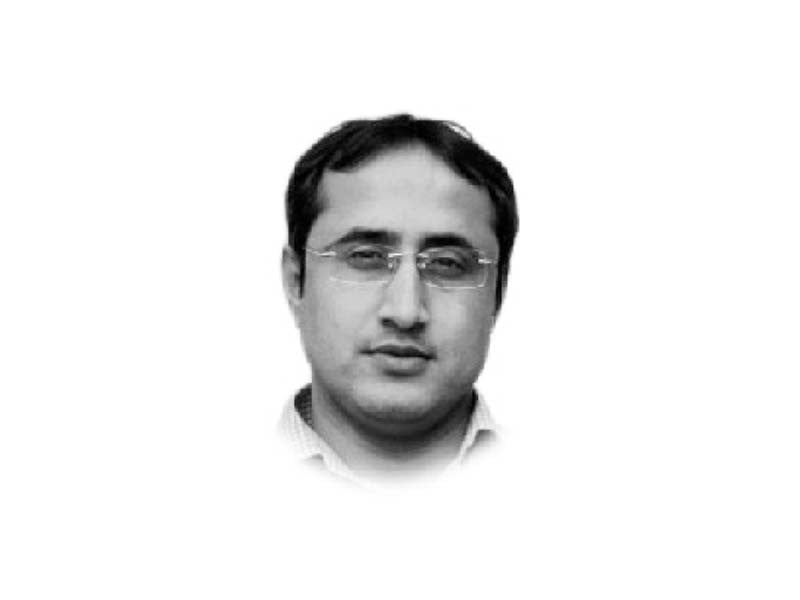
Legally speaking, parliament is sovereign and according to Edward Coke, the power and jurisdiction of parliament is so transcendent and absolute that it cannot be confined within any bounds. Blackstone believes that parliament is sovereign and uncontrollable authority in the making, confirming and expounding of laws. It has sovereignty over all citizens, bodies and authorities of state. Professor Dicey argues that there is no law which parliament cannot make; it can make laws, modify laws and repeal them. Further, he believes that no court of law can declare the law passed by parliament unconstitutional and ultra vires. Nevertheless, there are some internal and external limits and checks to legislative sovereignty including public opinion, media, ideology, morality, delegated legislation, judicial review and international law which may cause the decline of parliament’s powers if they are turned into restrictions due to political expediency.
Under the Constitution of Pakistan 1973, parliament works as supreme law-making body and represents the people of Pakistan. It exercises legislative and financial powers as per constitutional procedures and conventions. Further, the executive is elected amongst the members of lower house and is accountable to parliament. Effectiveness of both upper and lower houses of parliament has become imperative for restoring shattered image of parliamentary democracy derailed from time to time by military interventions which created unprecedented erosion in the role, authority and credibility of parliament by using doctrine of necessity.
Academic scholars in the workshop, recently organised by Pakistan Institute of Parliamentary Services (PIPS), discussed the public perception that parliament has become a defunct body of decision-making. They argued that growing economic downturn, political instability, democratic failure, growing social disparities and traditional and non-traditional security threats will continue causing terrible mass sufferings, misery, injustice and deprivation among people until parliament becomes strong enough to accept responsibility of fixing these issues through legislative means and maintain checks and balances on the executive through developing in-house accountability mechanisms.
Parliamentarians highlighted a serious decline in the power of parliament mainly because of judicial interpretation and military-bureaucracy nexus. Further they believed that some institutions are more powerful than parliament and do not cooperate with parliamentary committees. Technical experts also remarked that the work related to government business and private member business, procedure of moving money bill, motions and resolutions followed by discussions is time-consuming. Further, the start and supplement questions are undoubtedly effective parliamentary tools of oversight offering a lot of discussion and debate on legislative and non-legislative matters. However, the lack of consensus due to political immaturity and unnecessary criticism on range of issues sometimes leads to legislative gridlock and hinders legislative progress.
According to Article 69 of the Constitution, the validity of the proceedings in parliament shall not be called in question on the ground of any irregularity of procedure in any court of law. There is freedom of speech and members can freely discuss any important matter after moving adjournment motion. However, there are few restrictions on discussion under Article 68 which states that “no discussion shall take place in Parliament with respect to the conduct of any Judge of Supreme court or of a High court in the discharge of his duties.” The interpretation of these two articles causes power struggle between parliament and the higher echelons of judiciary and creates tensions and institutional polarisation causing disillusionment of public with parliamentary system of democracy run by debauched ruling elite who often turn blind eye to its poor conduct.
In financial sphere, parliament under articles 73-86 of the Constitution has vast fiscal powers in considering the resources and expenditures. The government cannot spend a single penny without its approval. The Constitution empowers National Assembly to recommend, impose, abolish, regulate and authorise expenditure and allocate resources. The government is also bound to share development plan with relevant standing committees for the purpose of review and to benefit from their expertise. Further, parliament needs to share budget strategy paper with public at least few months before the passing of budget to get feedback from the stakeholders and to maintain transparency.
Parliament is unable to progress because of poor decision-making resulting from lower educational standards. However, lawmakers’ professional performance can be improved through training and their engagement with research institutions to fill parliament’s academic and moral vacuum which overshadows everything it does. Parliament’s interactions with youth and encouraging research scholars to utilise parliamentary debates as a primary source of data can be vital for emerging discipline of parliamentary studies focused on parliament’s role as a house of collective wisdom believing in diversity of opinion, upholding constitutional principles and democratic norms and leading the dialogue among discordant sections of society in a graceful manner to bring back the lost peace, harmony and unity.
Those political leaders who are declared successful in the 2024 elections have great opportunity to restore parliament’s image by demonstrating their unflinching loyalty to the Constitution and capacity to serve above self with expectation that they will dispel misconception about parliament as addled house of leadership by avoiding display of low behaviour at this high place of serving the public.
Lawmakers are expected to raise their voices on issues of the common man like sustained inflation, pervasive administrative corruption and widespread lawlessness and demand increase in allocations for education, public health and clean environment. They are also expected to implement development projects in their constituencies to enlist the cooperation of all segments of society for transforming social structure. Restoring parliament’s supremacy will further require decolonising the colonial rules, democratising laws made during military regimes and making new laws to deal with political, economic and environmental challenges.
Published in The Express Tribune, February 14th, 2024.
Like Opinion & Editorial on Facebook, follow @ETOpEd on Twitter to receive all updates on all our daily pieces.


1731916090-0/sabrina-(3)1731916090-0-165x106.webp)


1732020599-0/BeFunky-collage-(73)1732020599-0-165x106.webp)


1729685382-0/Untitled-design-(57)1729685382-0-270x192.webp)




COMMENTS
Comments are moderated and generally will be posted if they are on-topic and not abusive.
For more information, please see our Comments FAQ